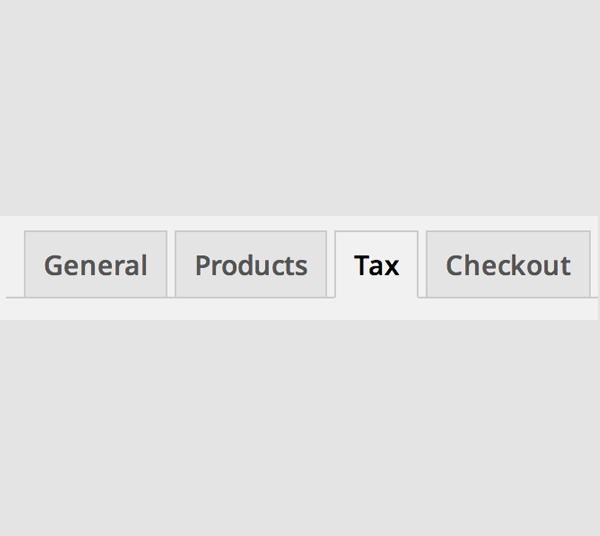 Backend Development
Backend Development PHP Tutorial
PHP Tutorial Getting Started for Beginners: Detailing the Core of PHP4 Zend_PHP Tutorial
Getting Started for Beginners: Detailing the Core of PHP4 Zend_PHP Tutorial
The name of the Zend engine is a combination of the names of Zeev Suraski and Andi Gutmans, two senior designers who worked as core developers in PHP. The purpose of the development was to develop a new script execution mechanism, and PHP4 is the first version of this new Zend engine. A practical product. In some special test environments, the execution speed of Zend (PHP$) is several to hundreds of times faster than PHP3 and ASP. This also means that the unifier of the website's back-end CGI interface must be PHP4 Zend. (Of course, technology is constantly improving, and new engines may appear one day.)
After more than two years of development, the Zend engine has become a generalized programming environment similar to VBA functions. It not only has traditional PHP The function function also adds the function of distributed objects (COM) and can be executed on different operating platforms. If it continues to develop with this potential, the terminator of VBA must be Zend.
When Zend was implemented on PHP4, it made the most complete commitment to the session, which was the biggest shortcoming before PHP3, and also added some future features, such as CyberCash... and so on.
In the opensource community, the only one that can maintain its momentum but has not yet been regarded as a competitor by Microsoft, PHP/Zend is the best example. It has completely left ASP behind and is developing towards a VBA environment. However, Microsoft only focused on dealing with Linux and did not pay attention to the threat from PHP/Zend.
The web server found that it was a request from PHP and needed to be parsed by the PHP engine (according to the file extension), so it sent it to the Zend engine of PHP4.
The Zend engine reads the file from the hard disk and sends it to the Zend online compiler (Run-time Compiler) for program literal translation. (Maybe the online compilation work can be omitted when Zend Compiler comes out in the future.)
The online execution unit (Excutor) of the Zend engine executes the compiled PHP program. And when necessary, find relevant modules to perform collaborative actions (such as XML, IMAP, ODBC...etc.).
Zend organizes the execution results into HTML files and sends them to the web server.
The web server sends the results back to the user's browser through the network.
There are currently four Zend products:
Zend Engine: Zend engine Zend engine currently only makes PHP4, providing cross-platform functions similar to Microsoft's VBA. The current popularity on the Internet has also provided the best testimony for the Zend engine. Among Zend's four major products, this is currently the only mature product.
Zend Optimizer: Zend Limiter re-adjusts the core of PHP to make PHP program execution more efficient. It can mainly speed up the execution of PHP code and reduce the burden on the CPU, reducing latency.
Zend Cache: Zend Cache caches the PHP program into the memory of the web server, so that the system no longer has to read the PHP program from the hard disk, which can greatly shorten the system's response time and reduce the load on the network. Data stored in the Cache does not even need to be translated, reducing processing resources.
Zend Compiler: Zend compiler This is probably the ultimate weapon of Zend. It allows PHP program code to be compiled and exist in the form of Zend Intermediate Code (ZIC, Zend Intermediate Code).
It can protect the PHP source code from being seen by users, so that the PHP source code is safe. It is expected that after the emergence of this product, it will have a considerable impact on the entire network. PHP code object libraries will be available everywhere, and the software industry will also provide relevant function libraries or object libraries to PHP programmers. By then, there may be a PHP vs. Java situation.
 成为C语言专家:推荐的五个必备编译器Feb 19, 2024 pm 01:03 PM
成为C语言专家:推荐的五个必备编译器Feb 19, 2024 pm 01:03 PM从初学者到专家:五个必备的C语言编译器推荐随着计算机科学的发展,越来越多的人对编程语言充满了兴趣。而C语言作为一门广泛应用于系统级编程的高级语言,一直受到了程序员们的喜爱。为了写出高效、稳定的代码,选择一款适合自己的C语言编译器是很重要的。本文将介绍五个必备的C语言编译器,供初学者和专家们参考选择。GCCGCC,即GNU编译器集合,是最常用的C语言编译器之一
 C++和Python,哪个更适合初学者?Mar 25, 2024 am 10:54 AM
C++和Python,哪个更适合初学者?Mar 25, 2024 am 10:54 AMC++和Python,哪个更适合初学者?在这个信息化浪潮席卷全球的时代,编程能力已经成为一项必备技能。而在学习编程的过程中,选择一门合适的编程语言显得尤为重要。在众多编程语言中,C++和Python都是备受初学者关注的两大热门选择。那么,C++和Python到底哪个更适合初学者呢?以下将从各方面对比两者的优劣,以及为什么选择某一种语言更有助于初学者的编程入门
 WooCommerce税务指南:适合初学者的指南Sep 04, 2023 am 08:25 AM
WooCommerce税务指南:适合初学者的指南Sep 04, 2023 am 08:25 AM现在我们已经了解了WooCommerce产品及其相关设置,接下来让我们了解一下WooCommerce的税务配置选项。税收设置作为在线商店所有者,您永远不会想搞乱税务规则和问题。WooCommerce在这方面为您提供帮助,提供多种选项来解决所有税务设置,这些设置可能会因您所在的国家/地区和个别商店的要求而异。可以在以下位置找到这些选项:WooCommerce->设置->税。进入税务设置选项卡后,您将看到一个主要的税收设置部分以及三种不同的税级。这些是:税务选项标准费率降低利率零利率税收
 Python初学者必学:掌握lambda函数的基础用法Feb 02, 2024 pm 06:41 PM
Python初学者必学:掌握lambda函数的基础用法Feb 02, 2024 pm 06:41 PM初学者必备:掌握Python中lambda函数的基本使用方法,需要具体代码示例概述:Python是一种简单易学的编程语言,它以其简洁、灵活的语法吸引了众多程序员的喜爱。在Python中,lambda函数是一种特殊的匿名函数,它可以在需要函数的地方直接定义,并且无需给它一个名字。本文将介绍lambda函数的基本使用方法,并提供具体的代码示例,以帮助初学者更好地
 Pandas初学者指南:HTML表格数据读取技巧Jan 09, 2024 am 08:10 AM
Pandas初学者指南:HTML表格数据读取技巧Jan 09, 2024 am 08:10 AM初学者指南:如何用Pandas读取HTML表格数据引言:在数据处理和分析中,Pandas是一个强大的Python库。它提供了灵活的数据结构和数据分析工具,使得数据处理变得更加简单高效。Pandas不仅可以处理CSV、Excel等格式的数据,还可以直接读取HTML表格数据。本文将介绍如何使用Pandas库读取HTML表格数据的方法,提供具体的代码示例,帮助初学
 初学者必读:如何根据需求选择合适的Django版本?Jan 19, 2024 am 08:20 AM
初学者必读:如何根据需求选择合适的Django版本?Jan 19, 2024 am 08:20 AM对于初学者而言,选择合适的Django版本是一个重要而且必须要面对的问题。Django作为一个高效的Web框架拥有大量的用户和开发者,因此它也拥有多个版本以满足不同产品和应用的需求。但是,如何根据项目需求选择合适的Django版本呢?下面我们将通过一些实例来帮助大家选择适合自己的版本。确认所用数据库Django支持多个数据库,包括MySQL,Postgre
 编程初学者应该优先学习C语言还是C++Mar 18, 2024 pm 03:15 PM
编程初学者应该优先学习C语言还是C++Mar 18, 2024 pm 03:15 PM标题:编程初学者应该优先学习C语言还是C++?在编程领域,C语言和C++是两种非常重要的编程语言,它们都有自己独特的特点和优势。对于初学者来说,选择学习哪种语言可能会有一些困惑。本文将就这个问题展开讨论,以及给出一些具体的代码示例来帮助初学者更好地了解两种语言的不同之处。首先,让我们来看一下C语言。C语言是一种功能强大且广泛应用的编程语言,它是从汇编语言发
 使用matplotlib制作散点图的初学者指南Jan 17, 2024 am 09:58 AM
使用matplotlib制作散点图的初学者指南Jan 17, 2024 am 09:58 AMmatplotlib是Python中最常用的数据可视化库之一。它提供了各种绘图选项,包括线图、柱状图、散点图等等。本篇文章将教你如何使用matplotlib绘制散点图,同时提供具体的代码示例,以帮助初学者快速上手。一、导入matplotlib模块在开始使用matplotlib绘制散点图之前,首先,需要导入相关的Python模块。代码如下:importpa


Hot AI Tools

Undresser.AI Undress
AI-powered app for creating realistic nude photos

AI Clothes Remover
Online AI tool for removing clothes from photos.

Undress AI Tool
Undress images for free

Clothoff.io
AI clothes remover

AI Hentai Generator
Generate AI Hentai for free.

Hot Article

Hot Tools

Dreamweaver Mac version
Visual web development tools

MantisBT
Mantis is an easy-to-deploy web-based defect tracking tool designed to aid in product defect tracking. It requires PHP, MySQL and a web server. Check out our demo and hosting services.

Notepad++7.3.1
Easy-to-use and free code editor

SAP NetWeaver Server Adapter for Eclipse
Integrate Eclipse with SAP NetWeaver application server.

SublimeText3 Mac version
God-level code editing software (SublimeText3)





